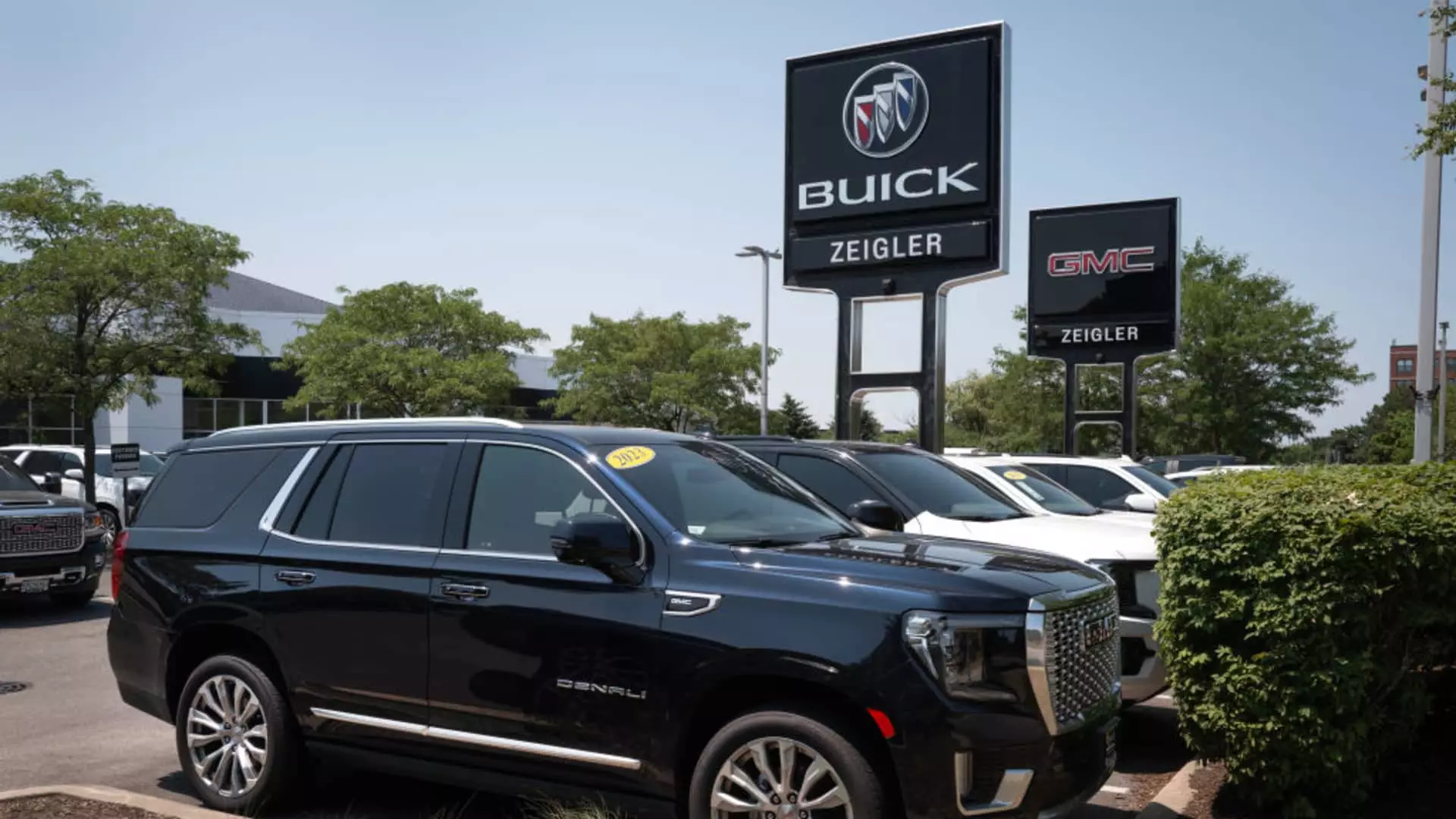General Motors recently announced its best quarterly sales in over three years, showcasing significant growth in full-size pickup trucks and all-electric vehicles. The company reported sales of 696,086 units for the second quarter, marking a 0.6% increase from the previous year. This surge represents the highest quarterly sales volume since the fourth quarter of 2020. Despite this positive development, electric vehicles (EVs) only accounted for 3.2% of total second-quarter sales. GM’s full-size pickup trucks experienced a notable boost as well, with sales reaching approximately 229,000 units. This figure reflects a 6% increase from the previous year and stands as the best quarterly sales performance since 2021.
One unforeseen disruptor in the second quarter was the cyberattack on dealer software provider CDK Global. The ransomware attack on June 19 forced CDK to halt its dealer management system, impacting nearly half of all dealerships in North America. The repercussions of this incident have been felt across the industry, affecting key sales operations during a crucial period. Jessica Caldwell, Edmunds’ head of insights, noted that the cyberattacks posed challenges for dealerships, especially during peak sales periods. As a result, some deliveries may be delayed until the third quarter as dealers navigate through these difficult circumstances.
Industry experts such as Cox Automotive and Edmunds anticipate that second-quarter sales across the auto industry will remain relatively stagnant compared to the previous year. This projection aligns with the prevailing trend of slowing retail demand amidst economic uncertainties. While GM’s second-quarter sales are expected to outperform the broader industry, the lingering effects of the cyberattacks on CDK could dampen overall sales performance. In light of these challenges, auto manufacturers and dealerships will need to adapt their strategies to address the evolving landscape of consumer demands and technological vulnerabilities.
Apart from GM, other automotive players have also released their second-quarter sales figures. Toyota reported a 9.2% increase in U.S. sales, with a total of 621,549 vehicles sold during the period. Hyundai’s brand saw a modest uptick of 2.2% in sales compared to the previous year, selling 214,719 vehicles. In contrast, Kia experienced a 6.5% decrease in June sales, contributing to an overall 2% decline in sales for the first half of the year. These varied performances illustrate the competitive dynamics within the auto industry and the diverse factors influencing market outcomes.
The auto industry faces a complex set of challenges in navigating through the aftermath of cyberattacks, fluctuating consumer demand, and competitive pressures. As companies like General Motors chart their course for future growth, they must remain resilient in the face of unforeseen disruptions and prioritize innovation to meet evolving customer needs. By leveraging strategic partnerships, technological advancements, and customer-centric approaches, automotive stakeholders can adapt to the changing landscape and drive sustainable growth in an increasingly competitive market environment.

